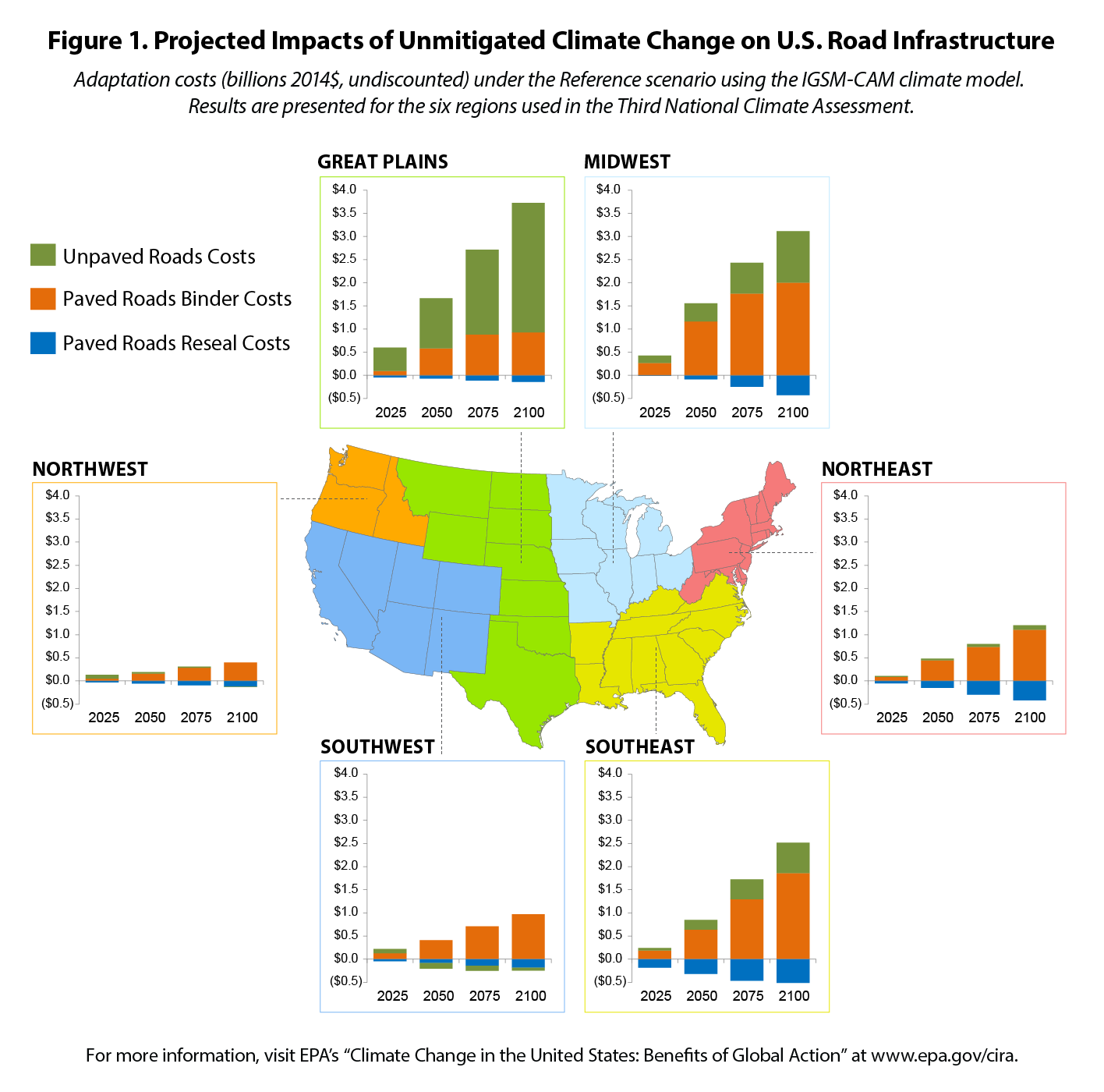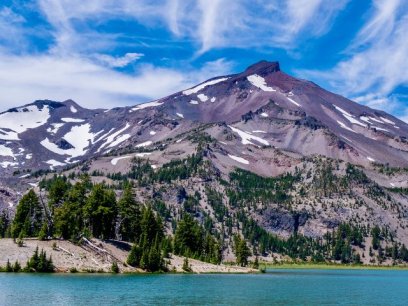
Did you know?
- The US transportation sector accounts for approximately 28% of total US greenhouse gas emissions.
- From 1990 to 2016, the number of vehicle miles traveled (VMT) by passenger cars and light-duty trucks increased by approximately 45%.
Besides contributing to a changing climate, the transportation system in the United States will also be negatively affected by climate disruptions. Roads, bridges, airports, rail lines, and coastal ports face risks from increasing temperatures, more extreme weather events, and changes in precipitation over the coming decades.
Higher temperatures make it easier for expansion joints on bridges and highways to stress, asphalt pavements to deteriorate more rapidly, and aircrafts to operate less efficiently. Higher sea levels associated with a changing climate will increase damages to roads, ports, bridges, and airports due to increased storm surges. Changes in precipitation, such as increased flooding and droughts, will impact bridge foundations, airline delays and cancellations, and storm drainage systems for roads, tunnels, airports, and city streets.
According to US EPA's report, Climate Change in the United States: Benefits of Global Action, reducing global greenhouse gas emissions over the next century can save the US an estimated $4.2-$7.4 billion in road infrastructure maintenance by 2100. Understanding how climate change will impact roads, bridges, and other transportation infrastructure can help community planners and decision-makers design infrastructure that is resilient to changing environmental and operational conditions.
What you can do
- May is National Bike Month. Need convincing to hop on two wheels? Consider these facts.
- Save money and reduce you environmental impact by following NEEF's cost saving travel tips.
Learn More
The graphs below display the projected impacts of climate change on US infrastructure.


Sources:
- National Climate Assessment. 2014. "Transportation." Accessed May 12, 2016. http://nca2014.globalchange.gov/report/sectors/transportation
- US EPA. 2017. "Climate Action Benefits: Bridges." Accessed May 15, 2018. http://www2.epa.gov/cira/climate-action-benefits-bridges.
- US EPA. 2017. "Climate Action Benefits: Roads." Accessed May 15, 2018. http://www2.epa.gov/cira/climate-action-benefits-roads.
- US EPA. 2017. "Sources of Greenhouse Gas Emissions." Accessed May 15, 2018. https://www.epa.gov/ghgemissions/sources-greenhouse-gas-emissions#trans…
- US EPA. 2017. "Transportation Sector Emisisons." Accessed May 12, 2018. https://www3.epa.gov/climatechange/ghgemissions/sources/transportation…


